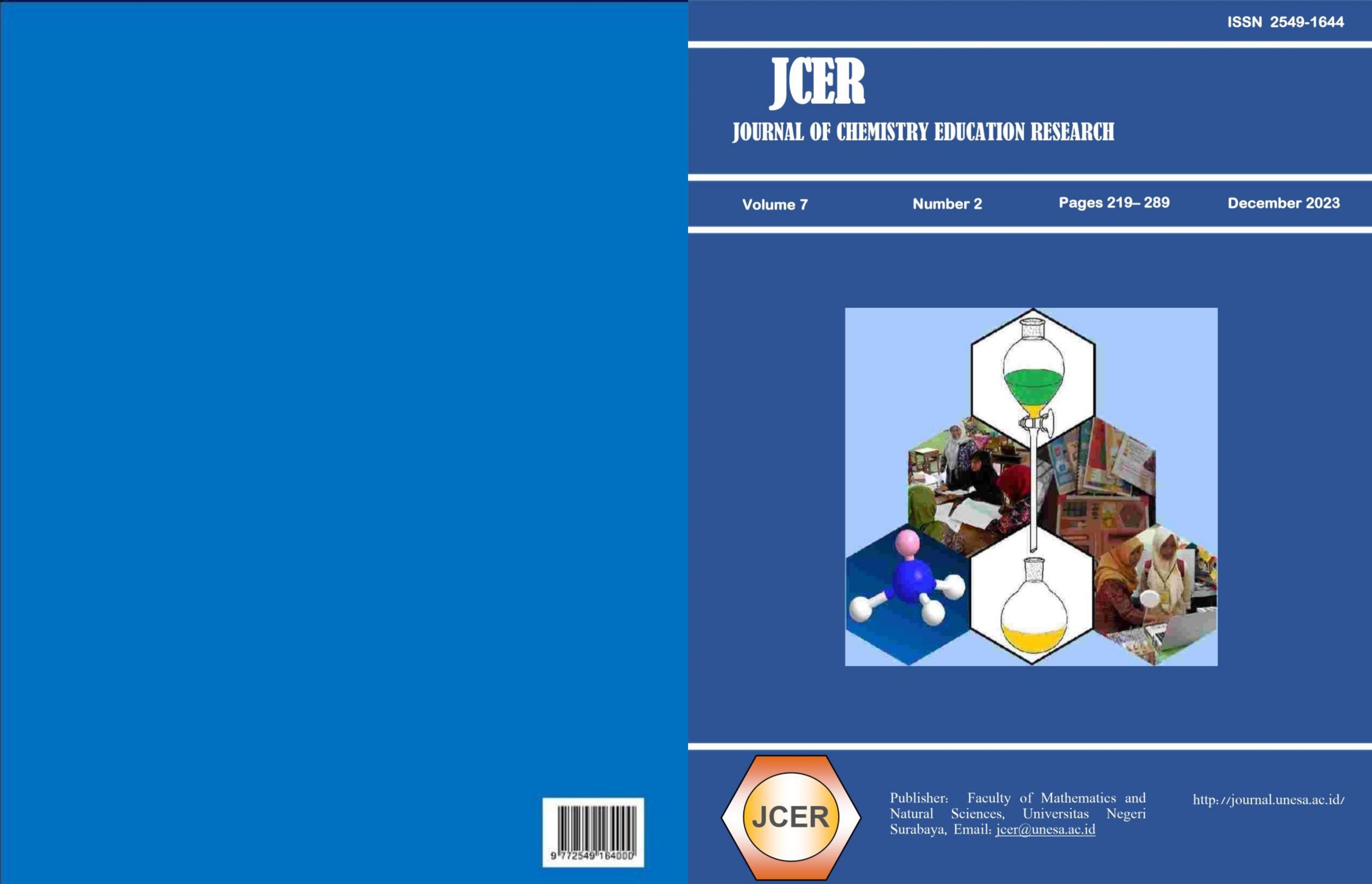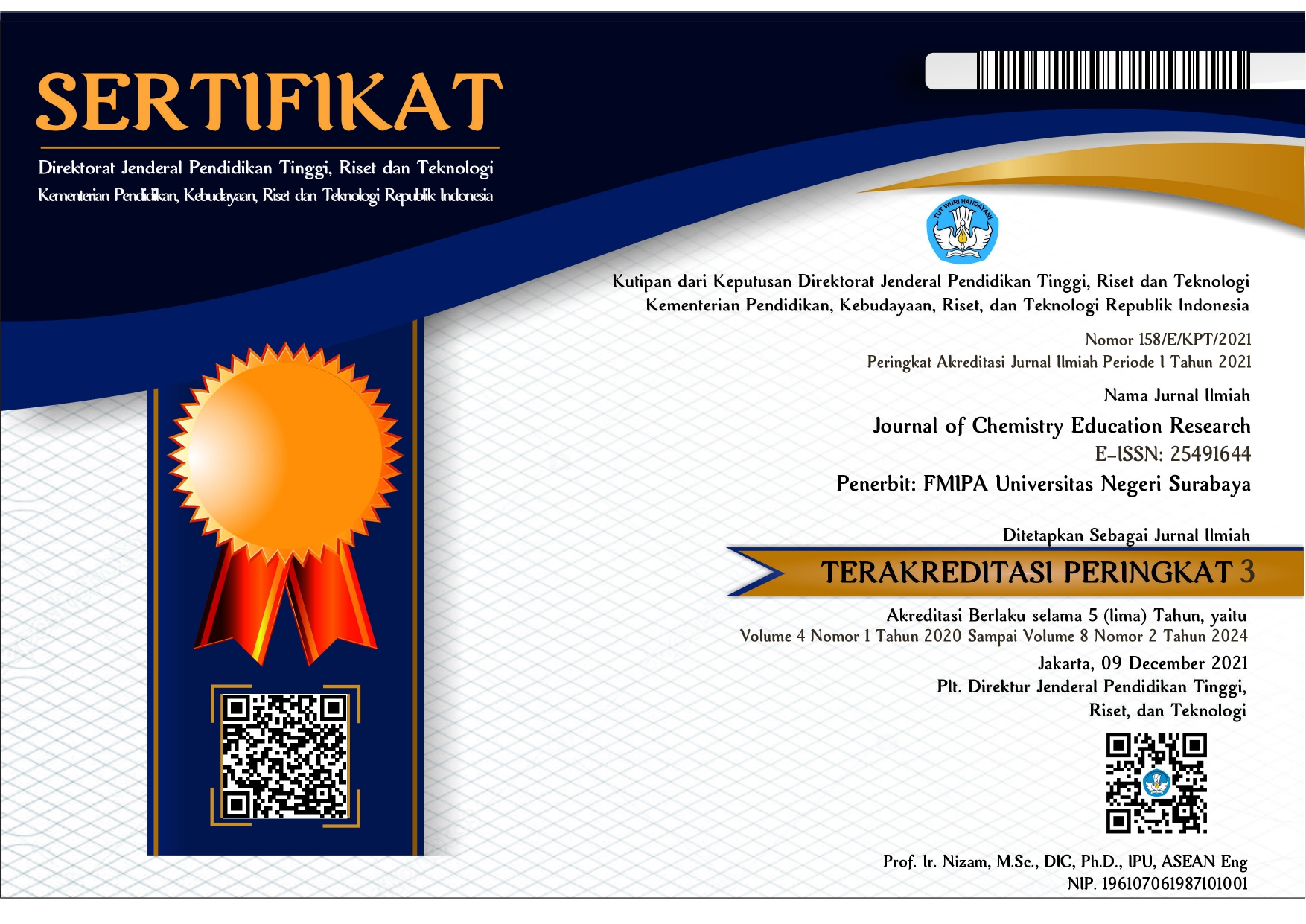Development of Virtual Laboratory as Multimedia Innovation for Interactive Learning on Reaction Rate Materials to Improve Students' Science Process Skills
DOI:
https://doi.org/10.26740/jcer.v7n2.p237-242Keywords:
Interactive Multimedia, Virtual Laboratory, Science Process SkillsAbstract
This research aim to produce a Multimedia Virtual Laboratory on the Reaction Rate Material to train Science Process Skills on the sub-materials of factors that affect reaction rates. The research method used is Research and Development (R&D). The results of the content validation was 91.67%, construct validation was 97.23%, validation related to presentation was 97.23%, validation related to language was 95.84% with very valid criteria. The results of the student response questionnaire stated that the average percentage of responses was 91.25% which could be categorized very practice. The results of the pre-test and post-test scores based on the t-test obtained the value of Sig. (2-tailed) 0.00 < 0.05, as well as the N-Gain analysis score of 0.93 > 0.7 with a high category so that it can be said that the Multimedia Virtual Laboratory developed is effectively used to train students' science process skills.
References
[1] M. V. Roesminingsih and L. H. Susarno, Teori dan Praktek Pendidikan, Surabaya: Unesa University Press, 2019.
[2] Arends, Learning to teach tenth edition, New York: Mc Graw-Hill Education, 2015.
[3] Sutrisno, Pengantar Pembelajaran Inovatif, Jakarta: GP Press, 2011.
[4] N. Hikmah, "Penerapan Laboratorium Virtual Untuk Meningkatkan Pemahaman Konsep Siswa," Jurnal Kimia dan Pendidikan, pp. 186-195, 2017.
[5] E. Sumargo and L. Yanita, "Penerapan Media Laboratorium Virtual (Phet) Pada Materi Laju Reaksi Dengan Model Pengajaran Langsung," Journal of Chemical Education, pp. 119-133, 2014.
[6] M. Miftah, "Pengembangan dan Pemanfaatan Multimedia dalam Pembelajaran Interaktif," Jurnal Litbang, pp. 147-156, 2014.
[7] J. &. T. Stark, Assessment And Program Evaluation, Simon & Schuster Custom, 2017.
[8] A. C. B. &. G. E. Alexiou, Virtual laboratories in education, Researches Academic Computer Technology Institute,Vol.XI (190), 19-28, 2015.
[9] M. Ibrahim, Model Pembelajaran Inovatif melalui Pemaknaan, Surabaya: Unesa University Press, 2014.
[10] Riduwan, Skala Pengukuran Variabel-variabel Penelitian, Bandung: Alfa Beta, 2013.
Downloads
Published
Issue
Section
License

This work is licensed under a Creative Commons Attribution-NonCommercial 4.0 International License.
 Abstract views: 334
,
Abstract views: 334
, PDF Downloads: 299
PDF Downloads: 299



